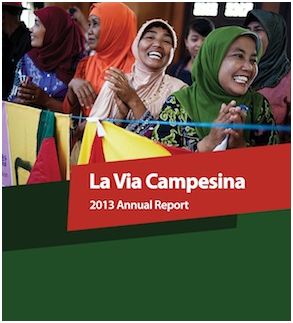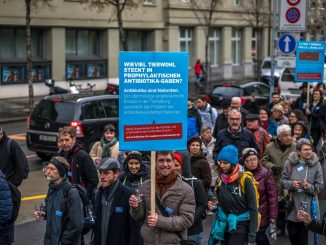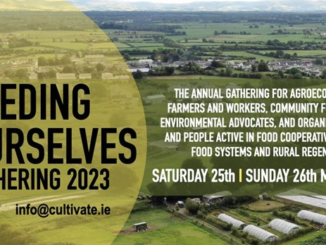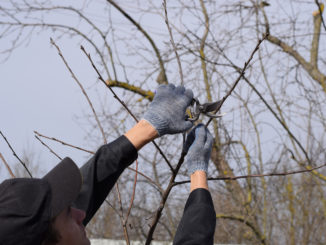
Within one short decade, the term food sovereignty has grown from a point of non-existence to prominence. Several events across Europe have highlighted the importance of Food Sovereignty. On May 23rd in Rome, the Food and Agriculture Organization of the United Nations (FAO) recognized the vital role of civil society, farmers and rural workers’ organizations related to this issue. The FAO want to deepen cooperation with the International Planning Committee for Food Sovereignty (IPC) in order to help those who actually produce our food.
“It is our wish for FAO and the IPC to move forward together towards the achievement of a world free from hunger, where all voices are heard and all women and men participate in shaping the programmes, policies and regulatory frameworks affecting their lives and livelihoods,” said FAO Director-General José Graziano da Silva at a signing ceremony.
“The agreement also foresees participation of the IPC in the work of FAO’s Plant Genetic Resources for Food and Agriculture (PGRFA) Commission, especially on sustainable use of plant genetic diversity and farmers’ rights.” FAO also wants to actively push for governments to implement its Voluntary Guidelines on the Responsible Governance of Tenure of Land, Fisheries and Forests.
In 1996, the International Peasant Movement La Via Campesina (LVC) pushed for the idea of food sovereignty at the World Food Summit. Since then, more and more farmers and food producers from around the globe have backed the concept. Coordinating events to talk about this specific subject is the first step towards building national networks that will defend this fundamental right.
According to LVC, “Food sovereignty prioritizes local food production and consumption. It gives a country the right to protect its local producers from cheap imports and to control production. It ensures that the rights to use and manage lands, territories, water, seeds, livestock and biodiversity are in the hands of those who produce food and not of the corporate sector.”
A couple weeks ago on May 16th, Ireland’s first ever food sovereignty assembly convened, titled “Gaining Control of Our Food”. Afri and Food Sovereignty Ireland are the two groups that organized the event. International and national speakers spoke to participants about their respective struggles and the challenges of creating a better food and agricultural system. Attendees shared their personal experiences and opinions about how to push the movement forward in Ireland. Connected to this day of discussion was the annual Afri Famine Walk where the theme was “From Famine to Food Sovereignty.” The Great Famine that happened in Ireland 165 years ago was due to farmers’ loss of food sovereignty. Terrible governmental laws and absentee landlords caused an indirect genocide. Grains that could have fed Irish people were being exported at the time that people were starving.
Attaching food sovereignty discussions and meetings to other annual or existing events could be beneficial to growing the movement and eventually establishing a national network.
European Coordination Via Campesina (ECVC), Friends of the Earth Europe, Nyeleni European Food Sovereignty Movement and Food Sov CAP are working on this issue throughout the European Union. These networks are leading the charge to establish food sovereignty as the framework for our food system. They are encouraging organizations that work on agricultural related issues to start focusing more on this in each member state because the rural policies and realities of each country are similar yet different.
In Eastern Europe, there are signs that a food sovereignty movement is gaining steam. As Arc2020 reported, a few months ago, over 200 farmers used tractor convoys to blockade roads in northern Polish towns. According to a press release from the International Coalition to Protect the Polish Countryside (ICPPC), their major demands were: “to end foreign corporate buy-outs of prime Polish farmland; to enforce the ban of GM crop planting and to end the criminalization of farmhouse food sales which they claim to be the most repressive in the European Union.”
“… a table was laid out with a wide range of ‘Illegal Foods’ representing virtually all Poland’s most popular and renowned farm products. These included smoked hams, sour cabbage, raw milk, bread, pickles and cheeses; all foods that do not comply with the current Polish government demand for farmers to carry out processing operations in specially constructed premises that are not affordable to any but the largest farms supplying the supermarket trade.”
A wide range of actors are starting to work together on food sovereignty in Romania as well. At the end of March in Bucharest, 10 Romanian participants from several civil society organizations met and discussed the issue of food sovereignty at the FAO Regional Conference for Europe and Central Asia. They did so before and during the much larger CSO Consultation Meeting. All national and international participants expressed their support for food sovereignty and this was a main focal point in the Declaration that was agreed upon at the conference.
In the future, the host organization of this event, Eco Ruralis, would like to reach out and connect with these participants in order to form the beginnings of a food sovereignty network in Romania. A lot of information sharing could take place between all groups involved and we could speak in a more unified manner on specific issues in order to show wider support to authorities and bolster the food sovereignty movement.
La Via Campesina homepage
More from Attila Szocs
- Public Land Agencies: French SAFER model safe for Romania?
- Elections 2014 in Romania
- New open source database uncovers land grabbers
- Organic Participatory Guarantee Systems – a Brazilian model.
- Let there be biodiversity! The importance of sharing free seeds
- FAO Voluntary Guidelines – hope for responsible land tenure policies
- Food losses and waste on the FAO agenda in Bucharest
- Organic vs. Conventional agriculture – where’s the profit?
- FAO Conference: peasant rights on the table!




